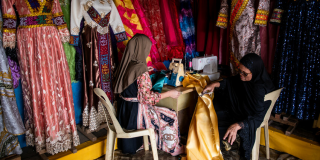
Content warning: Owing to the subject matter, the following blog contains material that maybe upsetting to some audiences.
Every minute, 20 people are forced to leave everything behind to escape conflict or persecution. But they aren’t just crossing international borders to seek refuge in other countries. For some people, that isn’t an option. Internally displaced persons (IDPs) share many of the same challenges refugees face, and overwhelmingly, the majority of them are women and children.
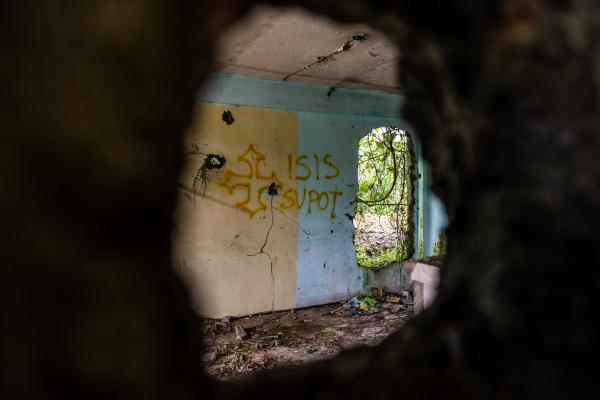
Mindanao, an island in the southern Philippines, has a long history of conflict with communists, Muslim separatists, and clan militias which has resulted in migratory movements.
In May 2017, members of the Maute group, an extremist group with links to the Islamic State (ISIS), stormed Marawi City in Mindanao. They took civilians as hostages, captured key government buildings, and torched churches and schools. For five months, a fierce battle raged between the Philippine military and extremist forces.
When the Philippine army eventually drove the Islamist fighters out, the Marawi siege left a trail of death and destruction that displaced over 400,000 residents. Families were forced to leave their livelihoods and homes behind.
Six years on, the situation remains bleak. Many of Marawi’s former residents are still living on the outskirts of the city, unable to return home and with little outside help.
Fatima and Amina’s stories *
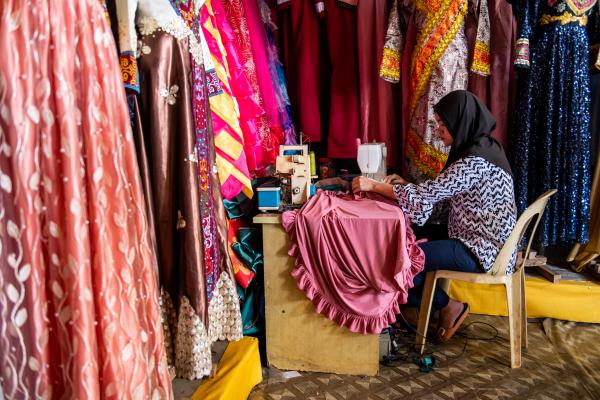
Before the Marawi siege, 20-year-old Fatima and her family had a dressmaking store in a shopping mall located in Ground Zero (often referred to as the main battle area). This was their source of income and although their lives weren’t always stable, they had enough to support their family.
Just two days before the siege, they had clothing stocks arrive from Manila. However, everything changed for them on the fateful night of May 23, 2017.
“When ISIS entered our town, the first thing that came to our minds was to run away from them. During the siege, ISIS came to our store and asked if we could say an Islamic religious term. Since we were able to, they released us so we could go to our family and get our children. While we were running away from ISIS, we saw them chop off a person’s head. At the time, we were going crazy and believed our source of income was destroyed. We thought the siege would only last three days, so we left our resources and things (including money) in the area. However, it went on for months,” says Fatima.
After they escaped, Fatima and her family were transferred to seven different evacuation centres across the Philippines.
According to Fatima, “Life in the evacuation centres was very hard. We couldn’t buy necessities, including medicine for our children, who were sick. So, the financial need at the time was very great.”
Amina aged 30, has endured a similar heartbreaking experience. Pre-Marawi siege, life was very peaceful for her and her family. However, that all changed in the blink of an eye.
“The first sign I noticed was the gunshots that were heard from our house. That’s when I knew that something was wrong. I was very nervous.”
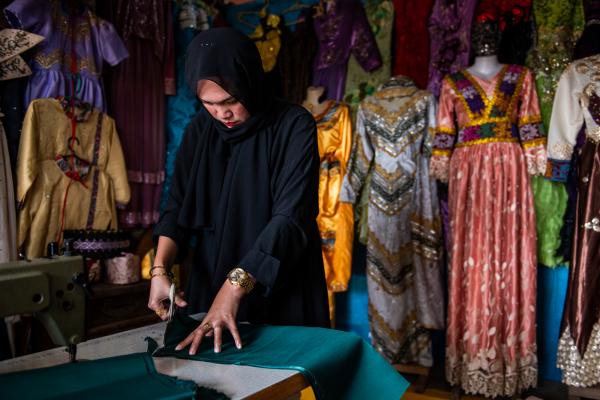
Amina was driven from her home with her family and forced to leave many things of sentimental value behind. This included photo albums of their childhood memories.
“The Marawi siege had such a devasting impact on our lives; our business went down, and our family couldn’t provide for our children. ISIS burned everything and made our lives miserable,” Amina says.
Although the Maute group is no longer in the city, extremist groups continue to operate in Mindanao though their numbers have dwindled and peace in the region remains precarious. The remnants of war are very evident, with the walls of houses and mosques still pockmarked with bullet holes and pro-ISIS graffiti. The deep scars left by the Marawi siege continue to haunt communities in the local area as life is very challenging for them.
However, today women like Fatima and Amina have hope for the future. They’re part of a women’s dressmaking group on the outskirts of Marawi City and have received technical assistance with VSO support. They’ve also had five days of training in financial and organisational development management by long-standing VSO national volunteer Vilma Esoto. This training taught them how to make the business more profitable, about financial literary and book-keeping; essential knowledge for running this type of initiative.
The dressmaking group has become a lifeline for these women, as they’ve received little other support.
“Only relatives of officials can get assistance really; for us commoners, we aren’t able to get help,” Fatima explains.
The first items they sewed were bed sheets and prayer materials for women. They then made face masks during the COVID-19 pandemic. Some were purchased by members of the army, with around 200 pieces sold to them.
Recently, they’ve made uniforms for the opening of schools. The women sell these garments both within their community and to others at events.
There are 17 active members in the group, including a president, a vice president, and a treasurer, allowing them to have some structure across their business. This helps to ensure their operations are sustainable not just in the short term, but for the future as well.
The dressmaking initiative has meant that both Fatima and Amina, who are devout mothers, are better able to provide for their families.
Moreover, for women like Amina, the dressmaking project has been a good emotional distraction.
Every time we hear gunshots, it reminds me of the Marawi siege, as though it’s happening again. However, since the dressmaking project became a habit and a livelihood, it has helped ease the trauma that we had. It’s empowering!"
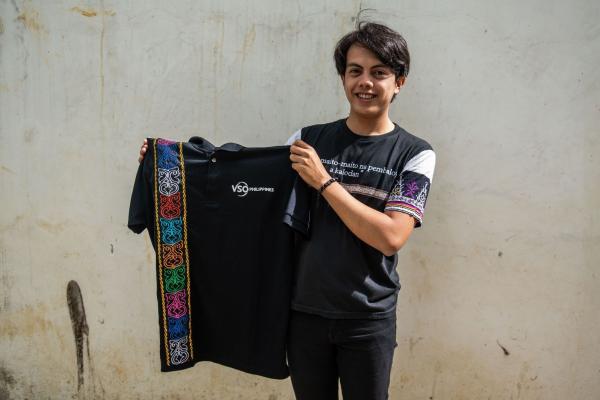
The initiative also fosters teamwork as the members help one another. For example, if a member is unemployed, the other women will train them on basic skills like putting sequins on the fabric so they too can have a livelihood.
Unlocking the power of youth
Fatima and Amina have also been given an opportunity to work with the assistance of youth social enterprise groups like N'ditarun Tano.
With VSO’s support, N'ditarun Tano sells garments nationwide via Facebook. Some of the pieces of clothing feature part designs from the women’s dressmaking group. Every time an item is sold, 30% of the profit goes to them.
Looking to the future, Amina wishes that the clothes-making business will grow bigger and become better known. If so, her son will be able to finish his studies with the income that she earns from the initiative.
Fatima hopes that she will provide her children with what they want, “I don’t have aspirations to be the richest in our community, but I just hope I can support my family all the way.”
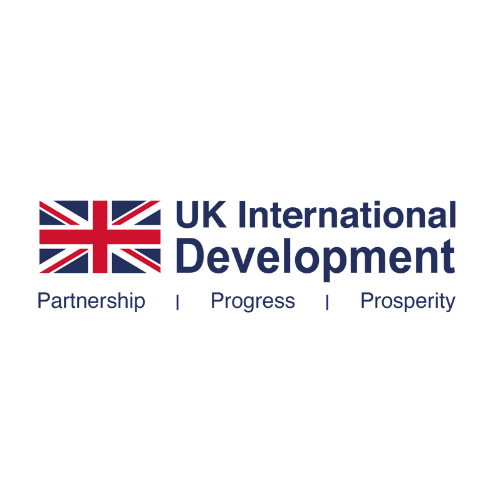
*The names in this story have been changed.
Learn more about our livelihoods work and how you’re a changemaker
Discover even more ways that you're helping people develop the techniques needed to build sustainable and resilient livelihoods in the face of adversity.
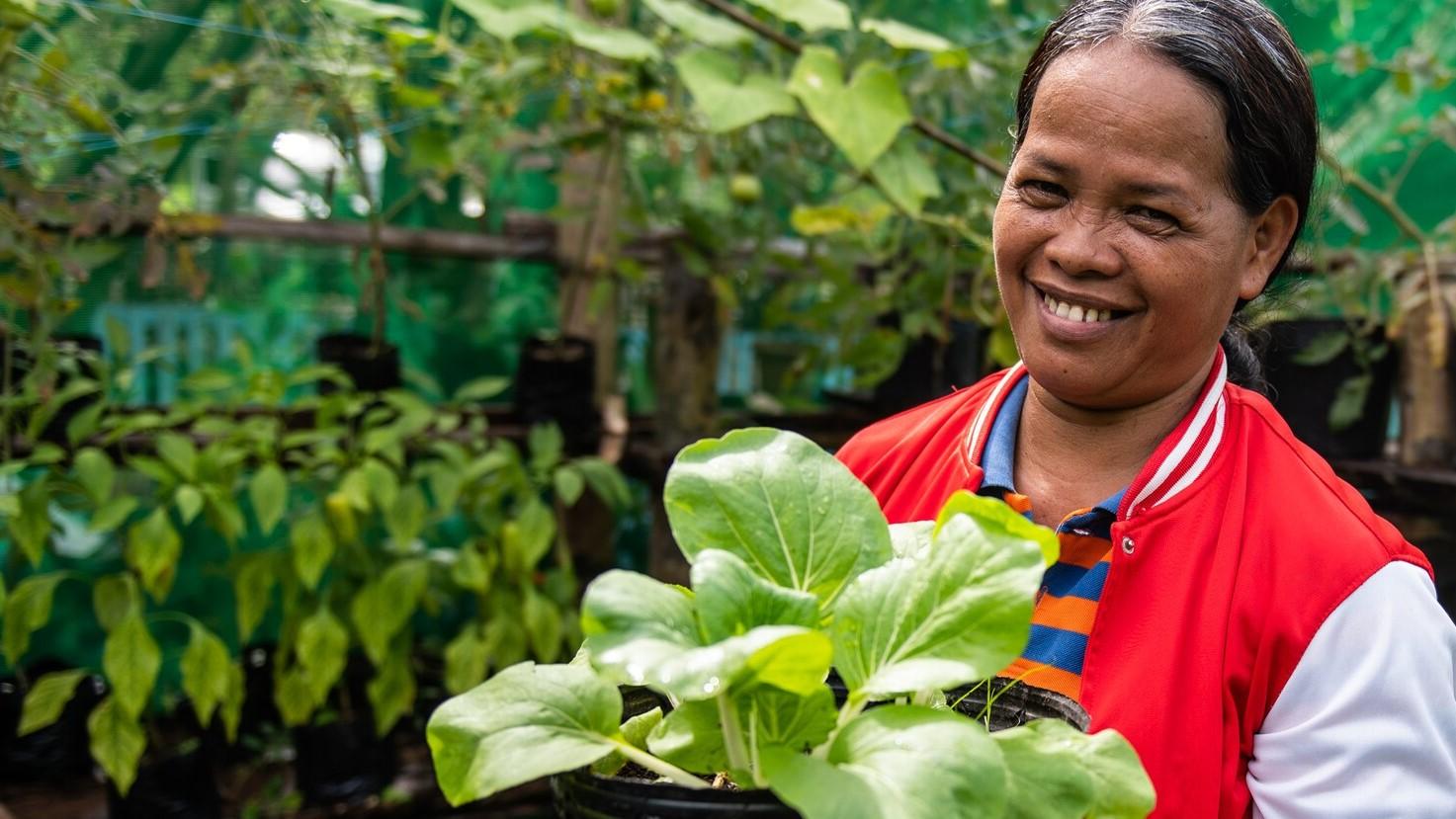
Support us with a donation
Read more
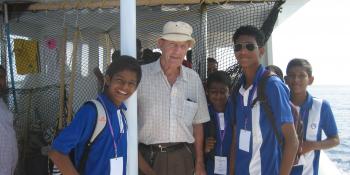
Transforming lives through education: Geoffrey’s VSO legacy
With a deep belief in the transformative power of education, Geoffrey from Norfolk, UK, has devoted his life both in the UK and abroad to making education more accessible for all.
